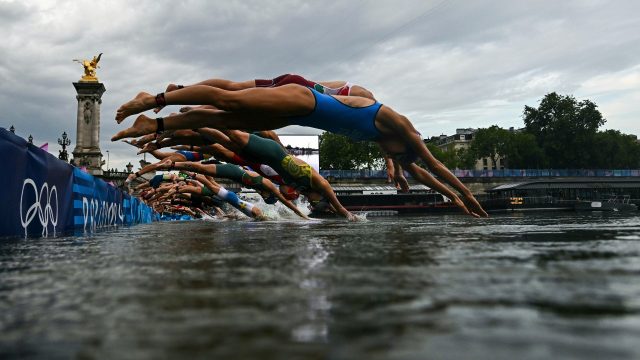
PARIS — Belgium’s Olympic committee announced Sunday that it would withdraw its team from the mixed relay triathlon at the Paris Olympics after one of its competitors who swam in the Seine River fell ill.
Claire Michel, who competed in the women’s triathlon Wednesday, “is unfortunately ill and will have to withdraw from the competition,” the Belgian Olympic and Interfederal Committee said in a statement.
The mixed relay triathlon is scheduled to take place Monday, with the swim portion of the competition slated for the Seine as well. The statement did not elaborate on Michel’s illness but it comes after concerns over the river’s water quality. Organizers had said that bacteria levels in the river were at a level that was considered safe for the athletes.
The Belgian committee said it “hopes that lessons will be learned for future triathlon competitions at the Olympic Games. We are thinking here of the guarantee of training days, competition days and the competition format, which must be clarified in advance and ensure that there is no uncertainty for the athletes, entourage and supporters.”